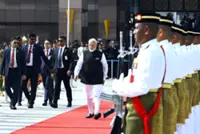PETALING JAYA: Malaysia needs to transform the “brain drain” narrative into a positive concept to address the loss of skilled talents, says chief statistician Datuk Seri Dr Mohd Uzir Mahidin.
The shift in perspective is necessary so that Malaysians who are seeking employment abroad will return or contribute to the country’s economy.





